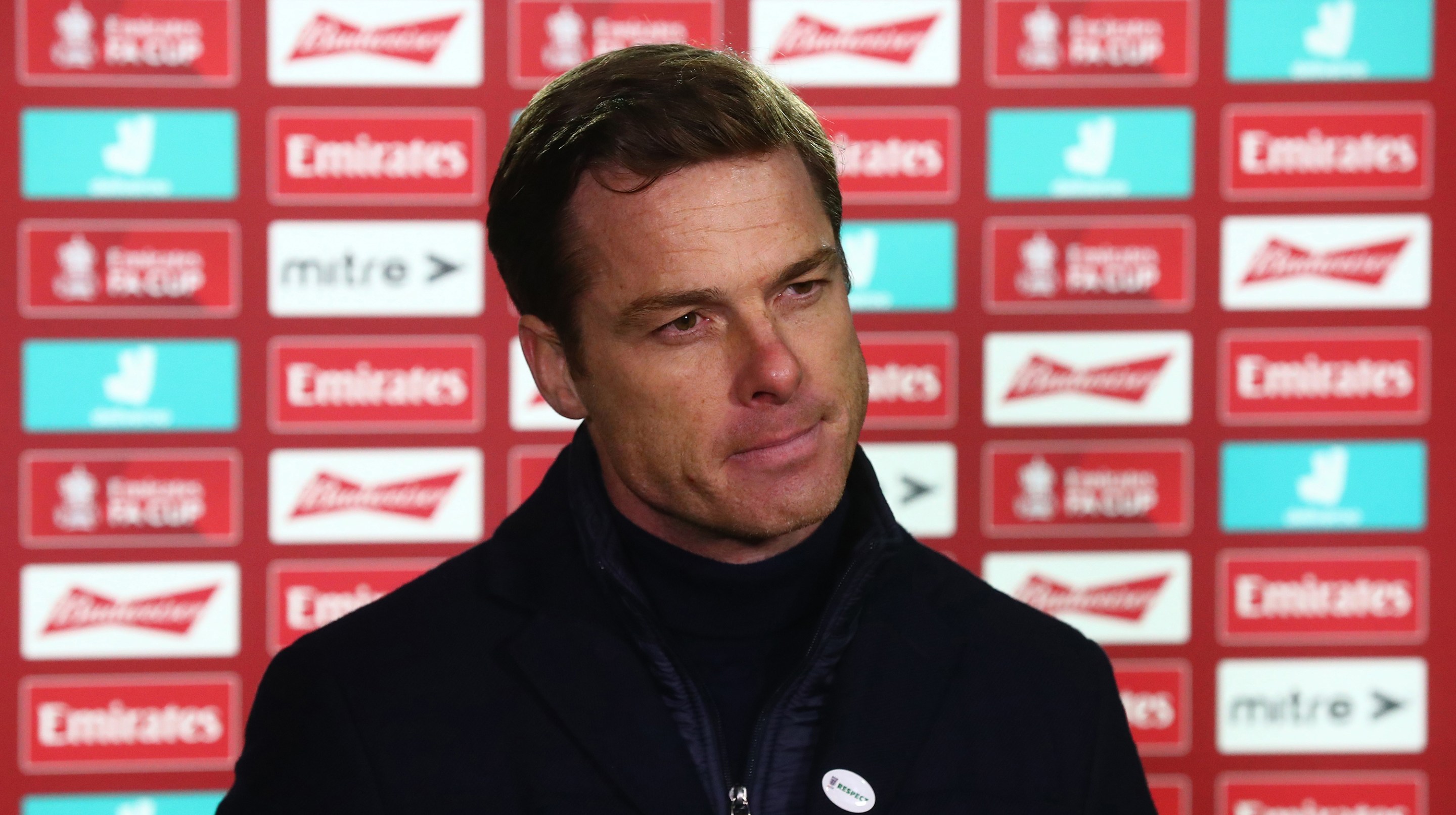"I am angry because it is not right. It is wrong. That is why I am so angry." That is Fulham manager Scott Parker, talking about the Premier League rescheduling his side's postponed match with Tottenham for Wednesday, with only two days' notice. The original fixture had been scheduled for December 30, but was postponed due to a COVID-19 outbreak in Fulham's camp. A different outbreak, at Aston Villa, forced the Premier League's hand; the Lions were originally set to play Tottenham on Wednesday but do not have enough first-team players cleared in order for the match to go on.
Welcome to the Premier League's scheduling nightmare, a scenario that was easily predictable at the start of this jam-packed season, and one that the league now must maneuver through on the fly in order to finish out its 38-game campaign alongside two domestic cup tournaments and the top clubs' European commitments. That last bit is why Fulham now has two days to prepare for a match against fourth-place Tottenham, as Spurs have to schedule around their Europa League matches. There simply isn't enough time in the weeks to come for Spurs to have a match day fall idle, and since Villa is in no shape to play on Wednesday, the league threw Fulham in at the last minute.
This isn't really fair to Fulham, which didn't think it had any matches until the coming weekend's game against Chelsea. As Parker said, he picked his team over the weekend—a 2–0 FA Cup win against Queens Park Rangers—without knowing he'd have another game four days later. On the other side, José Mourinho did know Tottenham would have a game on Wednesday, he just thought it would be against Villa, not Fulham. Sure, swapping tactics in two days comes with its own difficulties, but at least his own team selection on Sunday came about with a midweek game in mind. (It didn't hurt that Tottenham played eighth-division Marine, allowing him to play a heavily rotated side.) Perhaps that's why Mourinho called the Fulham rescheduling a "positive" solution to his club's scheduling problem; the alternative would be to have three games in one week at some point.
More broadly, though, this isn't a Fulham problem, or a Spurs problem. This is a Premier League problem, one brought about by a lack of foresight, and one exacerbated by the Euros this summer. Ideally, no club would be told that it has a match two days before said match. Without the Euros providing a hard stop for the 2020–21 season, the Premier League could simply move Fulham-Tottenham to the back end of the season. Instead, this situation popped up, and now everyone has to scramble.
It's important to reiterate here that both Fulham and Tottenham played cup games over the weekend, because the cups are another contributing issue here. Even in a normal, non-coronavirus year, the December schedule in England is brutal thanks to the existence of both the FA Cup and the League Cup. Having to cram two cup tournaments into an already over-stuffed 2020–21 Premier League schedule was always going to be a problem, and we're seeing why now.
So, what can the league do? There are three main options, and none are too appealing. The first is to simply cancel games and play a season with fewer than 38 games, in order to protect the players from overwork, fatigue, and injuries—a non-starter for TV revenue and competitive integrity reasons. The second is to postpone matches in hopes that the sides with the tightest schedules—those in European competitions—crash out early, giving the league time to reschedule matches for, say, March or April. That could work, but could also backfire if any of those teams goes on a deep run in Europe. The third is to do what they are doing with Fulham by rejiggering the schedule as needs must, and hope no one suffers or complains too much.
Of course, the league could also shut down again. That's the thing no one wants to think about, but reports say that English authorities are losing patience with soccer and that further protocol breaches that lead to outbreaks could force the government to step in and stop play. The vaccine could help with that. Perhaps the league shuts down again for a few months, everyone gets vaccinated, and it returns. But again, because of the Euros over the summer, a stoppage and subsequent restart would lead to all of the same schedule problems the league is already dealing with, only worse.
There is no simple solution to any of this, which makes planning for or predicting the future extremely difficult. The only clear thing is that as the virus goes, so the Premier League will go, and right now it doesn't look to be going anywhere good.






